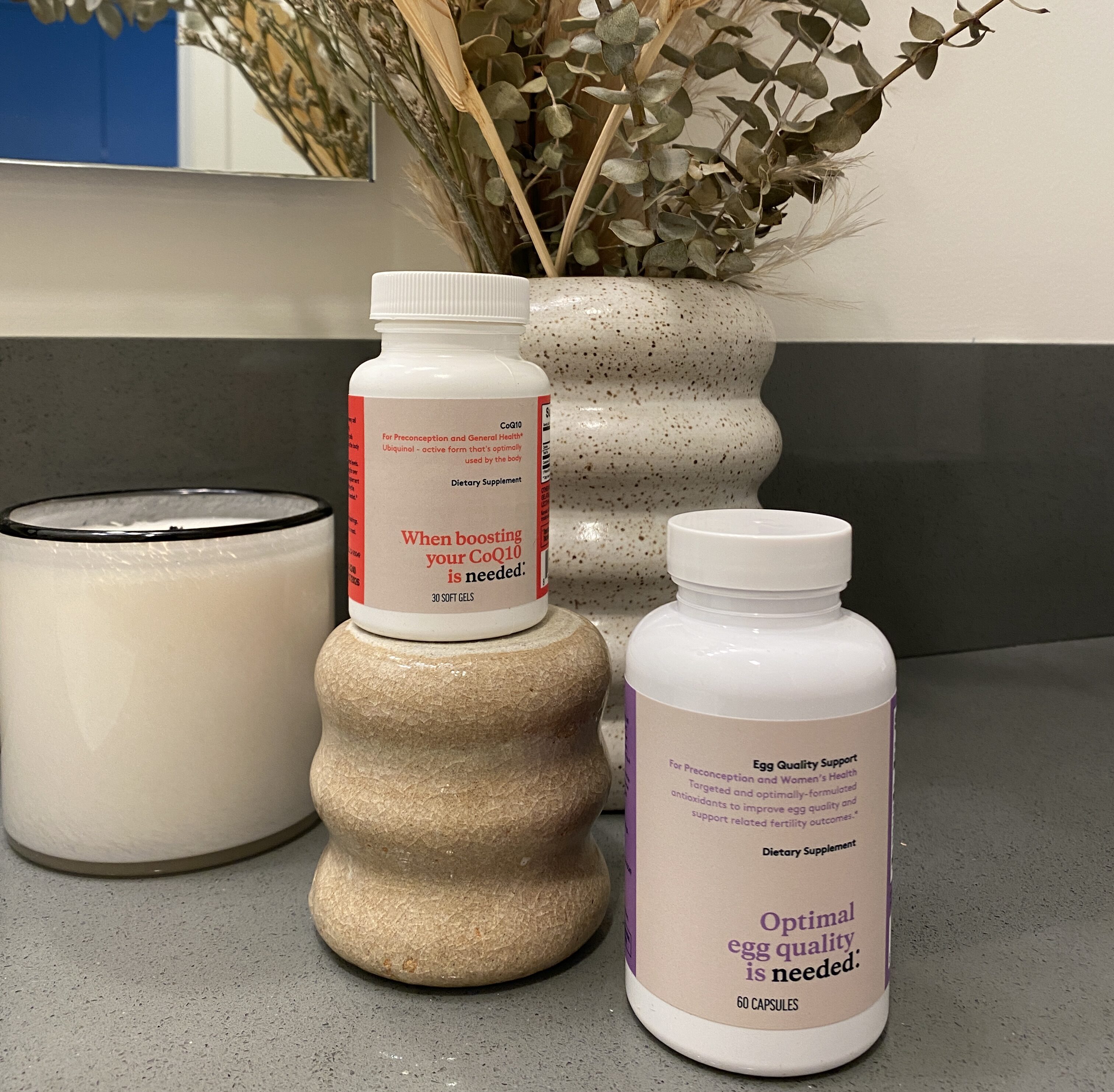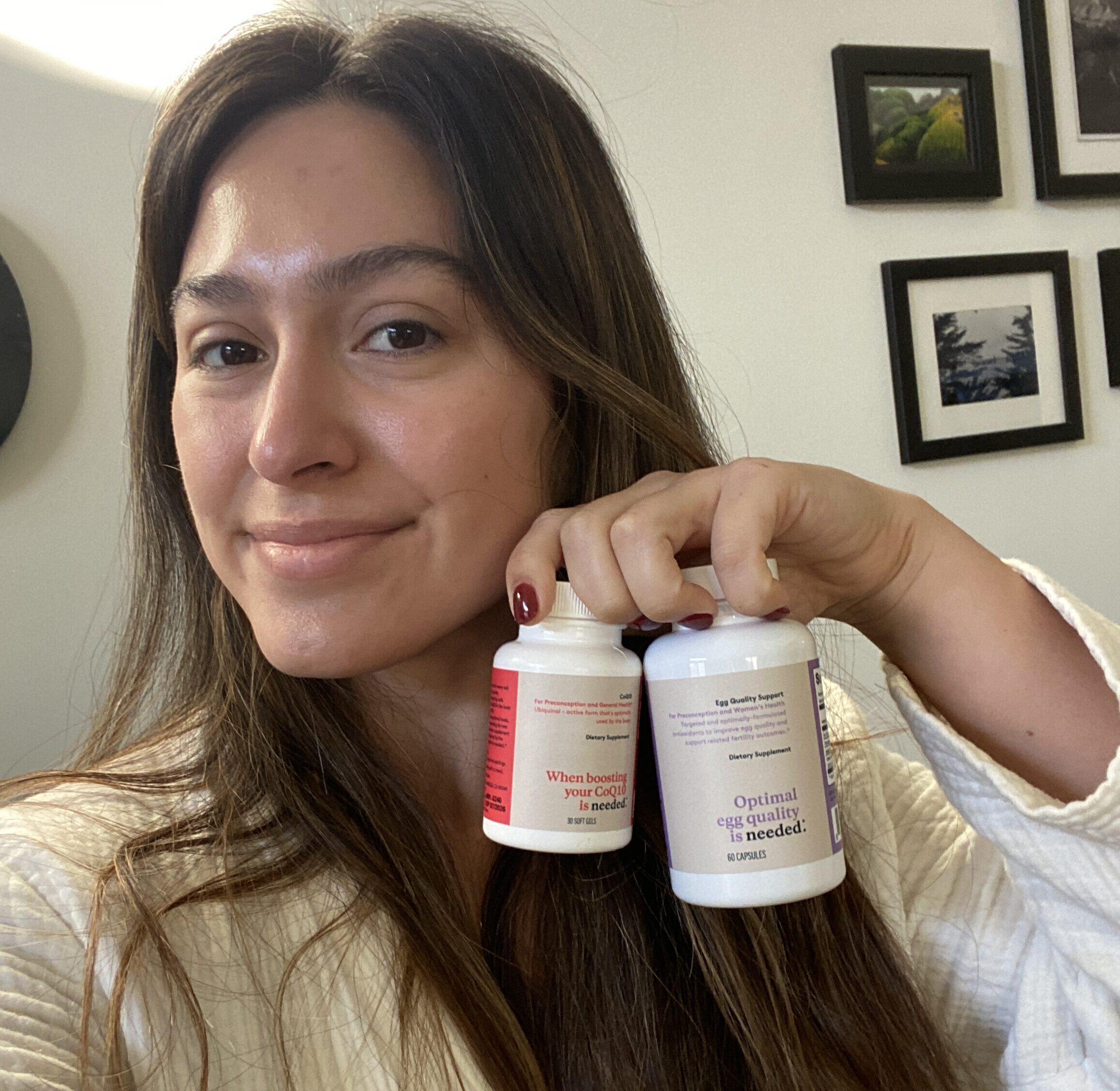Anyone else’s mom keep reminding them about their ticking biological clock? I swear, ever since my 25th birthday, “when are you going to have kids?” is my most-asked question. I’m not quite ready yet, so I started exploring egg freezing.
It seems like everyone is doing it these days, but it’s certainly not a walk in the park. From the sheer sticker shock (hello, $15,000 price tag!) to the daily injections and potential side effects, there’s a lot to mull over.
Here are 4 things to consider if you’re pursuing egg freezing (and the Needed plan that will help you prep):
1. Whether you’re ready for the whole experience
Freezing your eggs sounds simple, but it can be quite involved. First normally comes the blood test at the doctor’s to assess the status of your eggs. Then come the hormone injections, which you’ll likely self-administer once or twice per day for about 8-10 days. During that time, your doctor may recommend that you come in every few days so they can keep an eye on things.
About a week in, you take an ovulation blocker to keep your eggs from releasing so that they can be harvested. Finally, you give yourself a “trigger” shot around 35 hours before the procedure itself, which takes about 15-20 minutes (you’re usually sedated).
I’ve found that Needed’s Egg Quality Support Plan is one of the easiest ways you can prepare for this process. Their plan includes both their Egg Quality Support product and CoQ10 supplements, and you’ll take 2 pills of each supplement per day, ideally for at least 3 months before the egg freezing.
2. Your egg quality
When it’s time for harvesting, only the mature eggs are frozen. Needed is designed to support egg quality, in turn supporting fertility outcomes!
The Egg Quality Support Plan works by offering a blend of powerful antioxidants to aid my egg quality, which may mean a greater likelihood of them being viable. It’s really a number’s game, so the more mature eggs that can be harvested, the better.
3. The price tag
Egg freezing isn’t cheap. According to a Mercer National Survey of Employer-Sponsored Health Plans, around 19% of large companies (20,000+) offered egg freezing benefits in 2020, so make sure you review what’s available to you. Many plans exclude elective freezing, but it’s all dependent on your insurance.
Out-of-pocket, one egg freezing cycle can cost between $10k-20k, though this number varies greatly. Factoring in the storage costs (roughly between $500-$1k per year), it’s a big investment!
While there are factors that are outside of my control, I want to do everything I can to protect my investment. Needed’s Egg Quality Support Plan costs $79.18 per month, totaling $237.54 for 3.
I know that sounds like a lot, but if spending $237 is going to protect my pricey investment, it’s worth it. The plan includes a nutritionist consultation ($95 value), so I can learn what I should eat to better support my body during this process.
4. Success rate
The chance that freezing mature eggs results in a birth varies depending on factors like age, egg quality, and number of eggs frozen.
According to a study reported on by the New York Times, the chance of a live birth was 51% among women who froze their eggs when they were younger than 38. The percentage rises to 70% if the same under-38 age group froze 20+ eggs, but percentages generally decrease with age.*
Needed doesn’t make any claims that guarantee results, but even if I decide that I don’t want to freeze my eggs and want to try to get pregnant the traditional way, Needed’s Egg Quality Support Plan will help get my eggs ready for optimal outcomes. It feels like a win-win.
*These percentages may vary and are not conclusive.
Final Thoughts
Throughout my research, I’ve come to understand that this decision is about more than just preserving my fertility, but also setting myself up for the future, whenever I'm ready. I’m grateful to have discovered Needed’s Egg Quality Support Plan so that I can have the peace of mind of knowing that my fertility health will be supported, no matter which choice I make.






